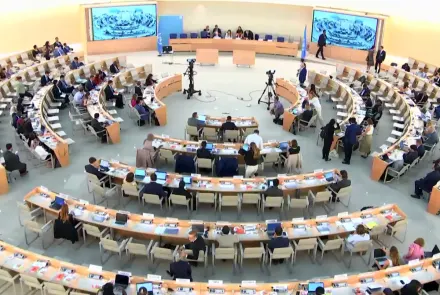The UN special rapporteur for Afghanistan, Richard Bennett, at the UN Human Rights Council called on the “Taliban to reverse their draconian, misogynist policies and allow women to work and run businesses, including delivering essential services through NGOs and the UN.”
Speaking to the 54th Regular Session of the Human Rights Council, Bennett said 60,000 women have lost their jobs due to recent restrictions of the interim Afghan government.
“Recently the Taliban has restricted women’s activities even more. Beauty salons have been prohibited, eliminating approximately 60,000 jobs, depriving them of one of few remaining women’s only safe spaces,” he said.
Meanwhile, the representatives of some countries who attended the meeting also voiced concerns over the restrictions on Afghan girls and women in access to education and work.
Lubna Qassim, UAE Deputy Representative to the UN Human Rights Council, said the “significant humanitarian challenges facing Afghanistan will have a significant negative impact on the Afghani society and its future.”
Lubna Qassim, added that there is no positive progress on the “ban imposed by the Taliban government on universities, education for girls, and their exclusion from working and civil society organizations national and international humanitarian organizations.”
The Pakistan Deputy Representative to the UN Human Rights Council, Zaman Mehdi, urged the de facto Afghan authorities “to take steps toward the resumption of female education” and enable them to “contribute to the Afghan society” and respect the rights and freedom of all Afghans including women and girls.
He also expressed concern about the “increasingly worrying humanitarian, human rights, and social-economic conditions in Afghanistan.”
The Islamic Emirate said that the rights of women are observed within an Islamic structure.
“Afghanistan is an Islamic country, and we define the rights through Islamic Sharia. Our people also want that right which Sharia determined for them. I am sure the ruling government in Afghanistan is not wasting the rights of anyone,” Mujahid said.
The education and work of girls and women are the two main issues which sparked reactions at an international level.—Tolonews










